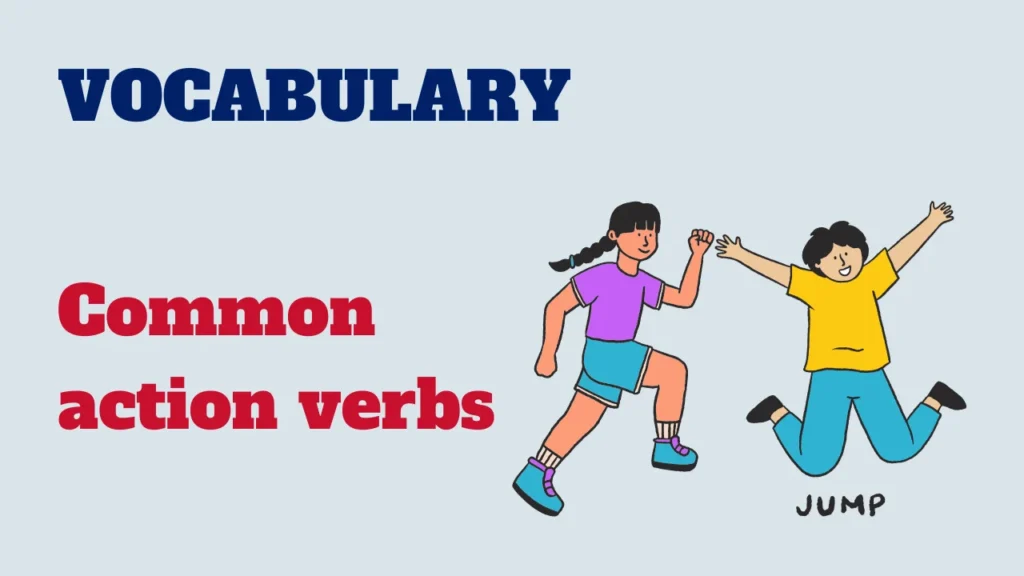Action verbs are essential for describing activities, movements, and processes in language.

In this vocabulary lesson, let’s explore a range of common action verbs that will help you express a variety of actions in your daily life.
Common action verbs vocabulary
- Run: To move rapidly on foot.
- Eat: To consume food.
- Read: To look at and comprehend written or printed matter.
- Write: To put words on paper or a digital device.
- Speak: To express thoughts, opinions, or information using words.
- Listen: To give attention with the ear, actively trying to hear.
- Jump: To propel oneself upward or forward.
- Swim: To move through water by moving the limbs.
- Dance: To move rhythmically to music, typically with a partner.
- Sing: To produce musical sounds with the voice.
- Sleep: To rest with eyes closed and the body inactive.
- Work: To engage in labor or toil for a specific purpose.
- Study: To apply oneself to learning a subject.
- Drive: To control and operate a vehicle.
- Play: To engage in activities for enjoyment and recreation.
- Cook: To prepare food by combining ingredients and using heat.
- Talk: To communicate by exchanging words.
- Climb: To ascend or move upward, especially using the hands and feet.
- Brush: To clean or groom using a brush.
- Exercise: To engage in physical activity for health or fitness.
Examples of action verbs in sentences:
- She likes to read adventure stories.
- He writes in his journal every night.
- They eat breakfast together every morning.
- She speaks English and Spanish fluently.
- He works at the bank from Monday to Friday.
- They play soccer at the park on weekends.
- She brushes her teeth before bedtime.
- He exercises at the gym three times a week.
Congratulations on expanding your repertoire of common action verbs! These words will prove valuable in expressing a wide range of activities and experiences. Practice using them in different contexts to enhance your language skills. Stay tuned for more vocabulary lessons on our language-learning journey!
Learn English
Share this 👉 https://quickglish.net/mrw3



